If you’ve ever listened to or played through a Marshall amp, you might be asking yourself the famous question, “Why do Marshall amps sound so good? In this article, I’ll tell you everything you need to know to understand why this amp has become the choice of some of the world’s best Rock and Metal players!
If you’re in a hurry, click here to go directly to a summary of why these amps rule, or read the entire article for an in-depth explanation.
The Short Answer
Marshall amplifiers get their iconic British sound from their Class AB design, which gives them a uniquely warm and crunchy tone with a focused midrange and harmonic distortion when pushed into overdrive. They have been used by some of the very best guitar players because their range of clean to high-gain tones makes them ideally suited for Rock and Metal.
Key Takeaways

Here are the essential points to remember about Marshall amps.
- Marshall’s iconic British sound is characterized by warm, crunchy tones with a focused midrange.
- They use a Class AB circuit design for efficient power output and tonal consistency.
- Marshall has a rich history and influence in rock and metal music.
- These amps are popular among famous musicians across various genres.
- They have pros and cons in durability, versatility, and the need for regular maintenance.
- Hand-wired Marshall amps have distinct features and impact on sound quality.
- Different Marshall amp models offer varied sounds and performances.
- The influence of factors like playing style, guitar type, and amplifier settings can be crucial to the overall sound.
- Marshall’s ongoing innovation in both tube and solid-state amplifier technology is impressive.
- Marshall amplifiers have a sound quality, robust build, and legacy in music history, giving them an enduring appeal.
Keep On Reading (Below) To Learn More
Marshall Amplification Company Profile

Marshall Amplification is a British company renowned for manufacturing music amplifiers and speaker cabinets.
The company was founded by Jim Marshall in London, England, in 1962. Jim Marshall was a drummer and drum teacher who used his musical background and the feedback of the musicians he knew to start creating equipment that catered to the needs of these performers. The first-ever Marshall amplifier, affectionately known as “Number One,” was crafted in a small shop in Hanwell.
Marshall has produced some famous amplifiers over the years, including the Bluesbreaker, JMP, JCM800, JCM900, and DSL series, each with its unique traits and enhancements. Furthermore, Marshall has expanded its horizons by crafting solid-state amps and digital modeling amps, like the “Code” series, to cater to a diverse spectrum of musicians and requirements.
Even though its founder, Jim Marshall, passed away in 2012, Marshall Amplification is still dedicated to building upon its prestigious heritage. It continues to be an influential player in defining the sound of music genres such as Rock, Metal, and Blues. Respected by musicians, technicians, and music aficionados the world over, Marshall remains a revered name in the industry.
Marshall Design Specifications
The design and build quality of Marshall amps are unparalleled. Their sturdy cabinet construction, usually composed of birch plywood, has proven to withstand the test of time and the rigors of touring. These amps also have their classic black and gold color scheme that has become a staple on stages worldwide.
Why Marshall Amps Have A Class AB Circuit Design
Part of what gives a Marshall amp its sound and performance is its Class AB circuit design, which allows for more efficient power output and helps maintain that iconic tone while pushing volume levels.
A Class AB amplifier is a type of power amp that combines the best qualities of Class A and Class B amplifiers, hence the name AB. These amps don’t use the bulk of their audio power until it is required.
So, Class AB amplifiers can provide both good efficiency (less heat, less power consumption) and good signal fidelity with a better signal-to-noise ratio than Class A amps, which is why this design is so commonly used, particularly in music amplification.
Does Marshall Make Class A Amplifiers?
The answer is no. No Marshall amplifiers are “truly” Class A in the strictest electrical engineering sense.
Class A amplifiers are defined as amplifiers in which the output signal is always present, regardless of the input signal. This means that the amplifier is constantly consuming power, even when there is no sound being played. Although they can have smoother distortion characteristics when overdriven, Class A amps are more inefficient and difficult to cool.
Models like the Marshall the 1974X and the hand-wired series Marshall 2061X are often referred to as Class A amplifiers. However, if we look at them in the strictest sense from an electrical engineering perspective, they are actually not Class A. Their “Class A” designation is due to marketing reasons or for their tonal qualities that resemble those of Class A amplifiers, including a certain warmth and responsiveness.
The closest Marshall to a Class A amplifier is the Marshall Class 5. The Class 5 is a 5-watt combo amp that uses a single EL84 tube in the power stage. This gives the amplifier a classic Class A sound, but it is still more efficient than a true Class A amplifier.
Why Marshall Amps Are So Highly Sought After
Here are the most important ingredients that make up the “Marshall Secret Sauce.”
Iconic “British Sound”
Marshall amps are famed for their warm, crunchy tone with a focused midrange, providing a distinctive audio quality that helped define the sound of Rock and Roll, Metal, and Blues. The distinctive sound of Marshall amps primarily boils down to their components and circuitry, such as EL34 and EL84 power tubes.
American amps are primarily known for their shimmering cleans and more scooped mids.
Pleasing Harmonic Distortion
These amps are also popular for their harmonic distortion. As the gain on a Marshall amp increases, it creates a musically appealing break-up, offering a more dimensional crunchy and thick tone, also known as the “Marshall growl.”
Class AB Circuitry And High-Quality Components
As discussed above, AB circuitry allows for more efficient power output and helps maintain the amp’s iconic tone at higher volume levels. Marshall uses only the highest quality components.
Heritage
Marshall is a brand steeped in Rock history, offering an appealing heritage aspect for musicians. Owning and playing a Marshall is like being part of a rich music tradition and a right of passage for any Rock or Metal player.
I still remember the feeling of musical exhilaration when I got my first Marshall half-stack. I played it all day and only got two hours of sleep that night! I must have played every guitar riff and solo I knew!
Endorsements
Many renowned guitar players have used and endorsed Marshall amps, which only added to a Marshall’s desirability and appeal. Who wouldn’t want to have the amp your favorite guitarist played, even if you didn’t have a wall of them?
Here is a short list of artists that use or have used Marshall amps across various musical genres.
| Artist’s Name | Musical Genre |
|---|---|
| Jimi Hendrix | Rock |
| Eric Clapton | Blues/Rock |
| Slash | Hard Rock |
| Pete Townshend | Rock |
| Zakk Wylde | Heavy Metal |
| Angus Young | Hard Rock |
| Joe Perry | Rock |
| Jeff Beck | Rock, Blues, Fusion |
| Eddie Van Halen | Rock |
| Billy Gibbons | Blues, Rock |
| Kerry King | Thrash Metal |
| Yngwie Malmsteen | Neo-Classical Metal |
| Jimmy Page | Rock |
| Eric Johnson | Rock |
Pros And Cons Of Marshall Amplifiers


Here are some of the pros ad cons that characterize Marshall amps.
| Pros | Cons |
|---|---|
| Sturdy construction and aesthetically pleasing design | Heavy, making them challenging to transport |
| Versatility: Marshall amps cater to various styles, from crisp cleans to high-gain tones. | Tonality: While versatile, the characteristic Marshall sound may not be ideal for all genres or players. |
| Durability: Known for their robust construction, ideal for gigging and touring | Requires Maintenance: Tube amps in many Marshall models demand regular maintenance and tube replacements. |
| Resale Value: They tend to hold their value well, making them a good investment. | Cost: High-quality craftsmanship and sound come with a higher price tag than other brands. |
| Variety: Marshall offers a wide range of models, from small practice amps to full-stack stage amps. | Simplicity: Some players might prefer amps with more onboard effects and features. |
Keep On Reading (Below) To Learn More
Hand Wired Marshall Amps – The “Real Magic”
Marshall began moving away from point-to-point, and hand-wired construction to printed circuit boards (PCBs) in the late 1970s, primarily for cost and efficiency reasons.
The famous Marshall JCM800 amp, which began in 1981, was predominantly PCB-based.
While some purists believe that hand-wiring results in a better tone, the transition to PCBs has allowed Marshall (and other amp manufacturers) to produce their amps more consistently, efficiently, and at a lower cost. This transition doesn’t necessarily denote a decline in quality. Some PCB-based Marshall models, like the JCM800, are considered classics and highly sought after.
In response to market demand for hand-wired amps, Marshall reintroduced versions of several of their classic models in the 2000s. These models are part of the Marshall Handwired Series, and they allow musicians to own a brand-new amplifier built using traditional hand-wired techniques.
More attention to detail during manufacturing can mean enhanced reliability and less time in the shop being serviced. True point-to-point wiring may be easier and less time-intensive to service than a printed circuit board design.
My Take On Marshall Hand Wired Amps
I’ve played through a variety of hand-wired amps and heard others onstage over the years, both new and vintage models, including:
- Fender ’64 Custom Deluxe Reverb
- Marshall 1974X Tube Combo
- Vox AC15HW1X
- Matchless Laurel Canyon 112r
- Carr Super Bee
I like that hand-wiring the circuitry can allow you to use larger electronic components, like resistors and capacitors, which can give you a better tone.
Hand-wired amps are not necessarily more road-worthy than PCB or Hybrid amps. It depends on the design, materials, and manufacturing process.
They are more dimensional sounding and give my playing a more touch-sensitive feeling, which allows me to emphasize very subtle variations in my technique.
So, although hand-wired amps can be pricey and typically have fewer bells and whistles, I tend to favor their tone and dynamics, with notable exceptions, but ultimately it’s your call!
Examples Of Hand Wired Marshall Amps

Here are some notable amplifiers from the Marshall Hand Wired Series.
Marshall 1958X
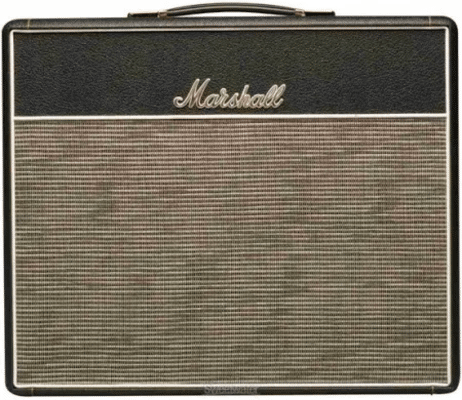
This is a reissue of the original 1958, 18W, 2×10″ combo. The 1958X is notable for its warm tube-driven tremolo and complex, expressive tone.
Marshall 1974X
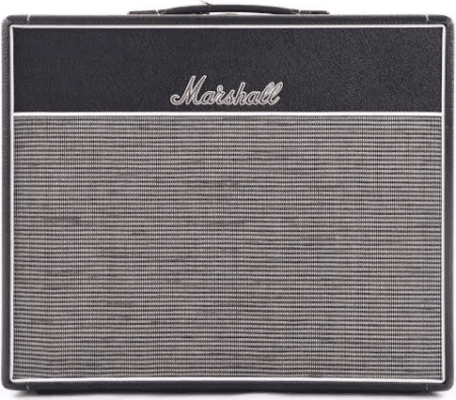
An authentic reissue of the model 1974, which was made from 1965 to 1967. The 1974X is an 18W combo amplifier with tremolo and features a pair of EL84 power tubes. It’s known for its warm, smooth tone and responsive dynamics.
Marshall 2061X
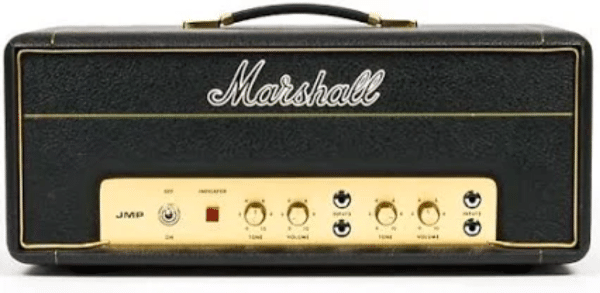
This is a reissue of the original model 2061, a “Lead and Bass” 20W head that was produced from 1967 to 1973. The 2061X has a straightforward two-channel design and is known for its bright, snappy tone.
Marshall 1962HW
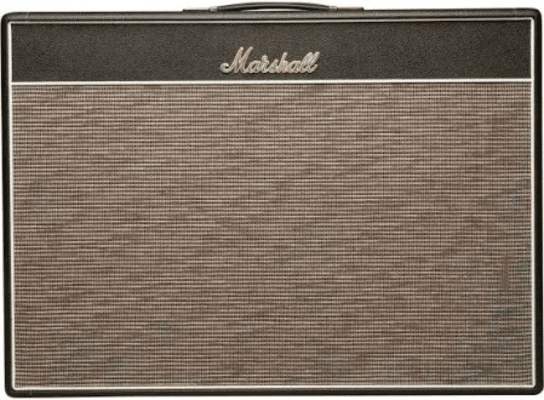
A reissue of the 1962, 30W, 2×12″ combo. Known as the “Bluesbreaker,” the 1962HW is famous for its smooth, bluesy tone.
Marshall 2245THW
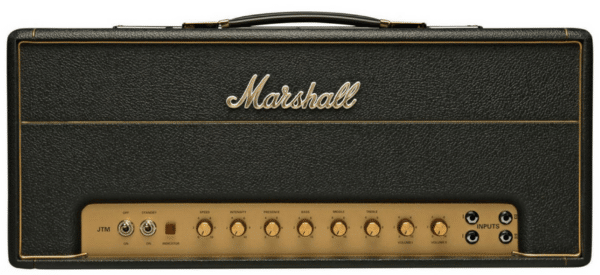
A reissue of the classic JTM45 “Bluesbreaker” head, which was the first amplifier Marshall ever made. The 2245THW is a 30W head known for its warm and unique bluesy tone.
Marshall 1959HW
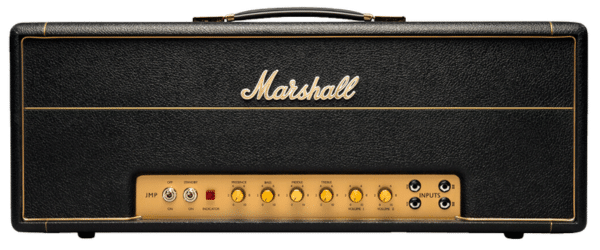
A reissue of the legendary 1959, the “Plexi” Super Lead 100W head. The 1959HW is a powerful amplifier known for its roaring, aggressive rock tone.
All Marshall Amps Sound And Perform Different!

The sound and playability of each Marshall amp model will vary according to a number of factors.
Playing Style And Guitar
Your playing style is one of the key determinants of how your guitar will sound when you plug it into an amplifier, depending on how you fret and pick the strings. This is one of the main reasons you should play through an amp using your guitar to hear its true tone and capabilities.
Guitars with various shapes, tonewoods, and pickups can significantly change the sound of an amplifier. For example, humbucking pickups will push an amp into overdrive or distortion easier than single-coil pickups.
Amplifier Type
Tube, solid-state, and digital modeling amps can each provide different sounds. Tube amplifiers are known for their warm, dynamic tones and natural distortion. Solid-state amplifiers are recognized for their clear tones, reliability, and durability. Digital modeling amplifiers can emulate the tones of various tube and solid-state amps.
Wattage And Headroom
Higher-wattage amplifiers provide more headroom, which is the capacity to increase the volume before the onset of distortion. This is crucial for playing clean tones at louder volumes. On the other hand, lower wattage amps break up and distort at lower volumes, which is desirable for some styles.
Class of Operation
Guitar amps operate in different classes, mainly Class A or Class AB, which affects the tone and response. Class A amps generally offer a warmer tone and smoother breakup, while Class AB amps are more efficient and louder. All Marshall amps are technically Class AB, but some models are designed to sound and perform like a Class A amp.
Number Of Channels
Many amps offer multiple channels, each with its own gain and EQ settings, allowing quick switches between sounds. It’s essential to check out the features and sounds available on each channel.
Tone Control And EQ
Amplifiers offer various degrees of tone control, from simple bass and treble knobs to multi-band equalizers. These controls allow players to sculpt their sound by boosting or cutting specific frequency ranges.
Volume And Gain Controls
The interaction between the amp’s volume and gain controls allows players to balance the level of clean and distorted tones. Some amplifiers don’t have an adjustable gain control.
Onboard Effects
Some Marshall amplifiers come with built-in effects like reverb and tremolo. Modeling amps, like the Marshall Code Series, offer delay, chorus, and a range of amplifier models which can significantly modify the sound.
Speaker Size And Configuration
The size and number of speakers in an amplifier affect its sound projection and frequency response. Larger speakers generally produce more bass frequencies, while smaller speakers excel at higher frequencies.
Cabinet Design
The design of the amplifier cabinet (open-back vs. closed-back) can also affect the sound, particularly its directionality and bass response.
Amplifier Age
Marshall has gone through many amplifier designs and configurations over the years. Vintage and Hand-Wired Series amplifiers can sound and perform differently than more modern designs. Most of the coveted Marshall amps are examples from the initial designs, like the Plexi and Super Lead vintage amps.
Are Marshall Amplifiers Legit?
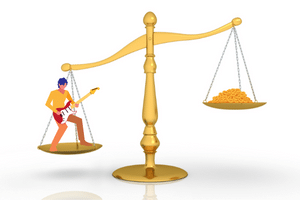
Yes, they are!
Marshall amplifiers have been influencing the tonal landscape for over six decades and capturing the Rock and Metal sounds of guitar players worldwide.
What sets Marshall amps apart is their unrivaled sound quality. Offering a rich, warm, and crunchy tone, they possess an unparalleled ability to articulate a guitar’s voice, be it a gentle musical phrase or a roaring scream. Their celebrated midrange focus allows musicians to carve out their space in a band’s mix, while the signature ‘Marshall crunch’ at high volumes has become the holy grail of rock guitar tone.
The versatility of Marshall amps is another significant aspect of their appeal. From vintage reissues like the “Bluesbreaker” to modern high-gain titans, each model provides a unique sonic character that caters to a spectrum of musical tastes and styles. Their continuous innovation is evident in their range of solid-state and digital modeling amps, offering many tonal options without compromising the classic “Marshall sound.”
Lastly, Marshall amps are revered for their robust build and longevity, promising reliable performance on stages and in studios. The love for Marshall amps among guitar players is as much about their sound as it is about their enduring legacy and commitment to quality.
Frequently Asked Questions

Here are some of the questions I get asked about Marshall amplifiers.
If your question does not appear here, please put it in the comments, and I will get right back to you with an answer.
What Is The Most Sought-After Marshall Amp?
Although there’s no one correct answer, generally speaking, vintage Marshall Plexi and Super Lead amps are among the most sought-after models. The Marshall DSL series amps are very popular based on their versatility and range of power outputs.
Why Are Marshall Amps So Expensive?
Marshall amps can be pricey because of the quality of materials and craftsmanship that goes into the R&D and manufacturing process. The tube amp models are generally more costly than the solid-state and modeling units.
Why Are Marshall Amps Called Plexi?
Plexi amps have a plexiglass control panel, which was commonly used on Marshalls between 1965-1969, starting with the Model 1959, 100-Watt Super Lead head.
Who Bought Out Marshall?
Marshall was acquired in 2023 by the Swedish company Zound Industries. Zound previously licensed the Marshall brand for its headphones and speakers.
What Marshall Amp Did Hendrix Use?
Jimi Hendrix preferred and mostly used three Marshall Super Lead 100 Watt full-stacks. He also used Fender and Sunn Amps, among others.
Where Are Marshall Amps Made?
Generally, the Marshall assembly line amps are made in Hong Kong and Vietnam, while the hand-wired models are made in Bletchley, England.
Final Thoughts

I hope you enjoyed this article on why do Marshall amps sound so good.
Marshall amplifiers have been, and continue to be, a gold standard for guitarists seeking that signature British sound. Their meticulous design, quality components, and pleasing harmonic distortion have helped shape the sound of Rock and Metal over the decades.
Marshall amps feature sturdy construction and aesthetically pleasing design, versatility, durability, a wide product range, and a good resale value.
While they have their drawbacks, the distinct Marshall sound has proven to be a worthy investment for aspiring rockstars and seasoned musicians.
If you’re looking for a Class AB amp with an iconic sound of Rock and Metal, your search may be over!
Hand-wired Marshall amps offer the best in vintage sound with modern performance. They have to be heard to be believed.

Here’s a fun video from Discover UK that takes you on a tour of the Marshall factory in Bletchley, England, and gives a simple explanation of how tube amplifiers work. So cool and a must-see for any Marshall fan! Check it out!
What To Read Next ➡ How To Make A Fender Amp Sound Like A Marshall – Full Guide!
Tell Me What You Think

Please leave a comment below if you enjoyed this article, have any questions about Marshall amps, or want to give your point of view. I will be happy to help you.
- What is your favorite Marshall amp? Why?
- What other amps do you think sound as good or better than a Marshall?
- Would you spend the extra money on a vintage or hand-wired Marshall amp?
- What else is on your mind?



Hello, fellow guitar enthusiasts! I’m excited to join this discussion because the article delves into this fascinating topic and offers some insightful information on the science behind it.
In my personal experience, I am always drawn to the sound and power of Marshall Amps. However, I’ve often wondered how they managed to produce such a unique sound. The article explains that the Marshall amp’s history and the combination of its unique components contribute to its distinct sound.
If you’re a guitarist looking to achieve that classic Marshall sound, there are some practical actionable solutions you can consider. Firstly, investing in quality Amp and cabinets can go a long way in achieving the desired sound.
I believe this article offers excellent insights for guitar enthusiasts. However, I still have some questions; What are some of the notable changes in Marshall amps over the years, and how do they affect their sound?
Overall, if you’re a fan of Marshall Amps and want to understand the signs behind their powerful sound, then you should check out this article. With the right amp and some experimentation with some settings, you can achieve an incredible sound. So what do you think? What has been your experience with Marshall Amps, and how did you manage to achieve that iconic sound?
Hi, Loras
Thank You for your comments!
Some of the most significant ways that Marshall amps have improved over the years are with the addition of two or more channels, adding a Master Volume control, and with amp modeling technology (like the Marshal Code amp series).
There’s nothing like a Marshall! Get one, and you’ll be glad you did!
Rock On! 🤘
Frank 🎸
Thank you for writing this insightful article on why Marshall amps sound so good. As a guitar enthusiast, I thoroughly enjoyed reading about the history, design specifications, and unique characteristics that make Marshall amplifiers highly sought after by rock and metal players.
Your article effectively breaks down the key factors that contribute to the iconic Marshall sound. I appreciated learning about the Class AB circuit design, which provides the warm and crunchy tone, as well as the harmonic distortion that adds depth to the sound. It was interesting to understand how the choice of components and circuitry, such as the EL34 and EL84 power tubes, contribute to the distinctive audio quality.
Hi, Anoth
I appreciate your comments!
A Marshall belongs in every Rock and Roll, Metal, and Blues player’s amp collection!
Rock On! 🤘
Frank 🎸